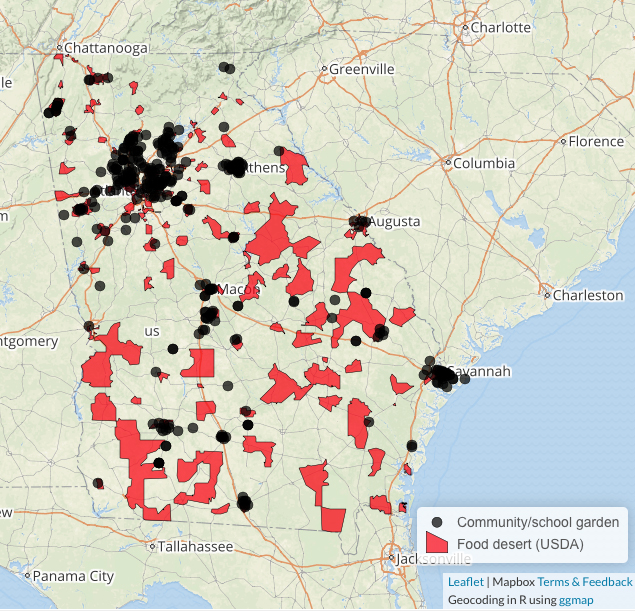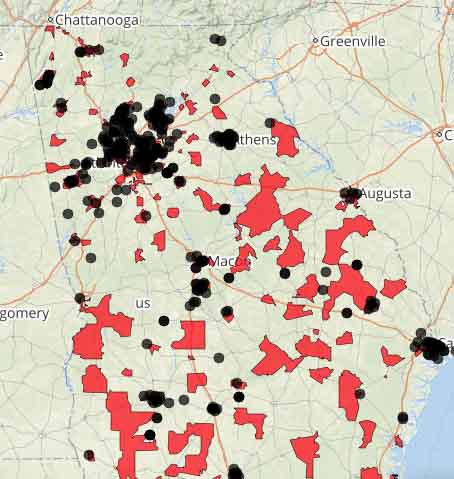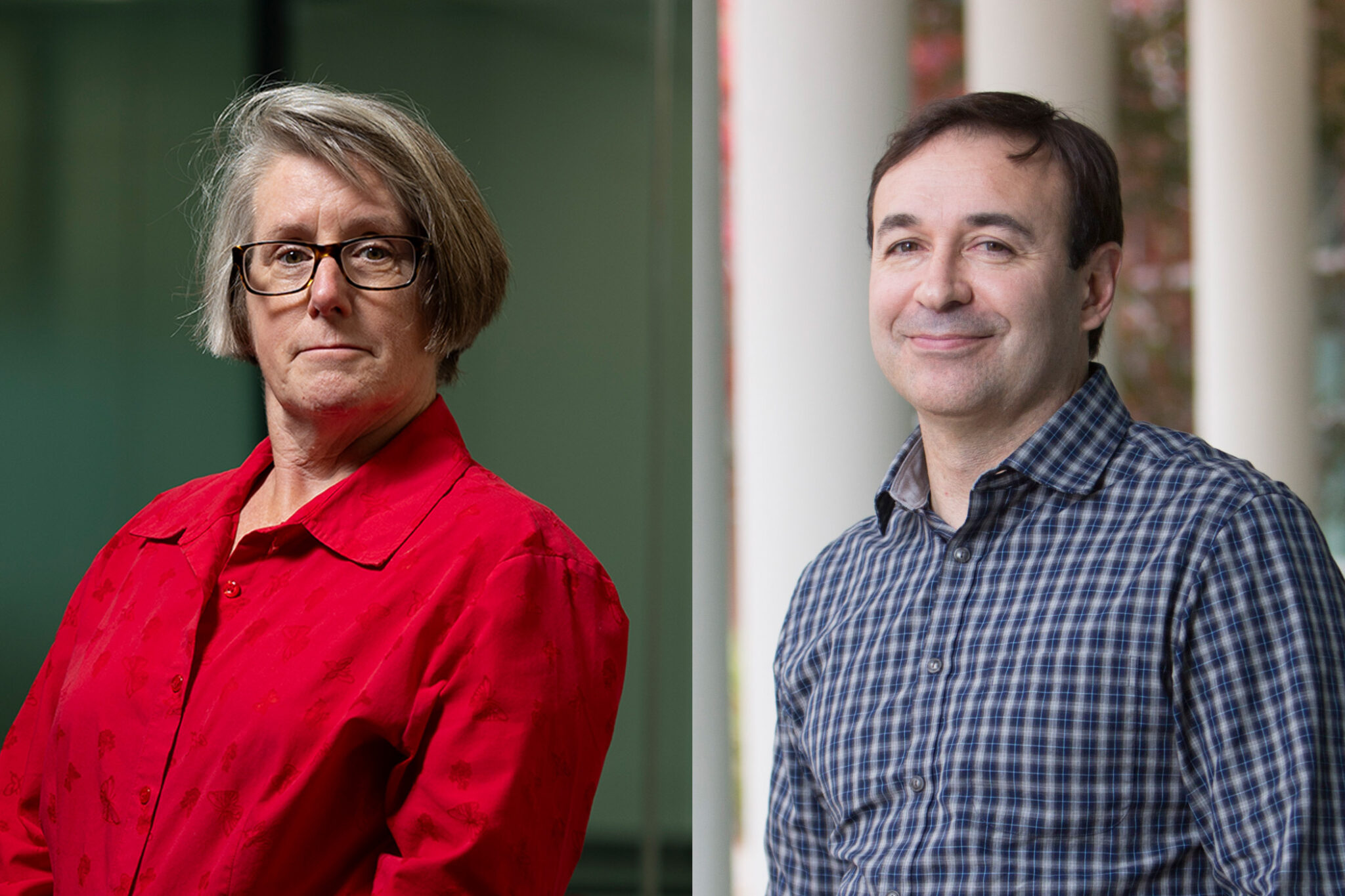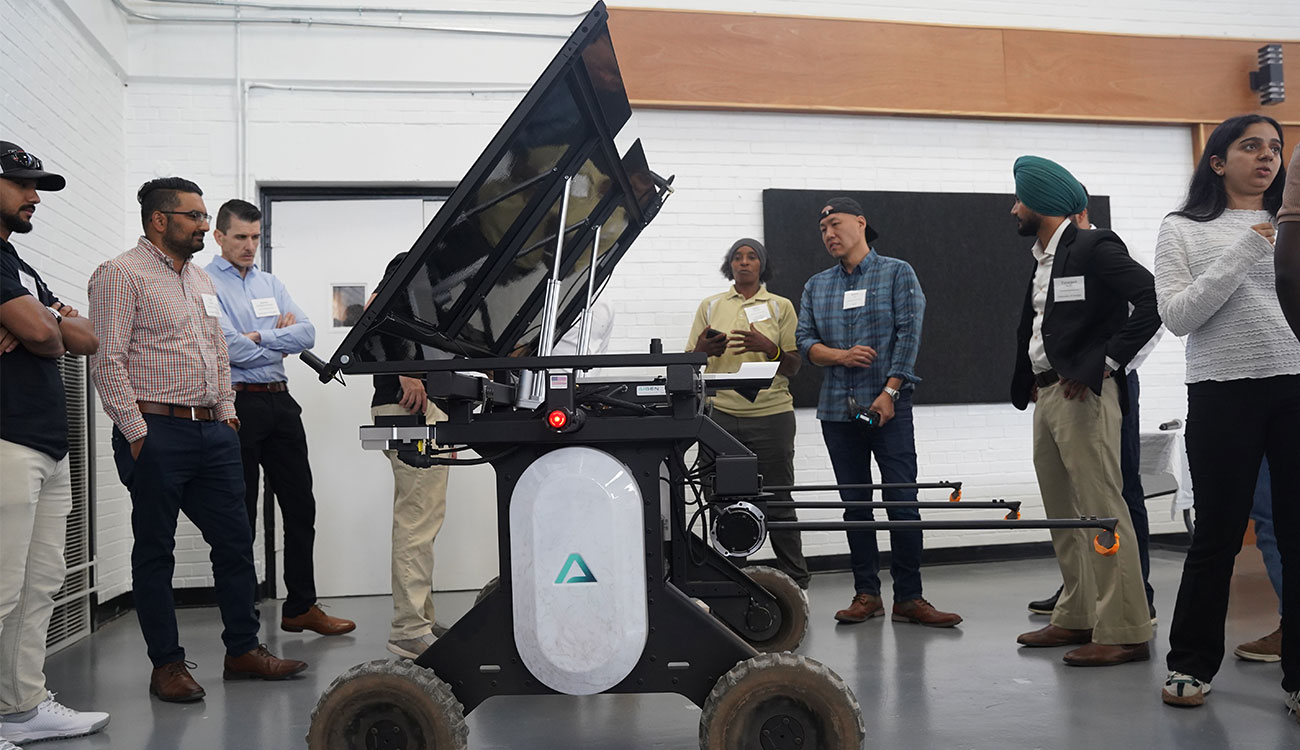Traditionally, Cooperative Extension has served the nation by bringing sustainable, science-based agricultural practices to farmers in rural areas. Today, in cities throughout the nation, Extension agents are being called on to assist community gardeners and urban farmers to grow tomatoes, cucumbers, zucchini, squash, okra and even chickens on abandoned lots and in church and school yards.
In Georgia, given the warm climate, long growing season and robust network of University of Georgia Cooperative Extension agents, urban farms and community gardens are thriving. From Metro Atlanta to Dalton, Warner Robbins, Savannah, Athens, Augusta, Carrolton and Valdosta, UGA Extension agents, Master Gardener Extension volunteers and UGA students are helping to make approximately 360 farms, community and school gardens a success.
UGA Extension agents and volunteers are working with teachers to help students in elementary, middle and high schools learn about the natural world, math and science by growing fresh produce in school gardens. Georgia 4-H, the state’s premiere youth leadership program, runs after-school garden programs at schools, Boys and Girls Clubs, YMCAs and other community centers.
University students are helping to cultivate vegetables in community and campus gardens across the state. The university's UGArden, a small farm run by UGA students, provides fresh produce to food pantries and food insecure families.
Volunteers and UGA Extension agents are working to show that small gardens spread through out urban areas can have affect on the diets of neighboring communities and community engagement. At churches, homeless shelters, drug rehab centers and senior centers, UGA Extension agents are empowering gardeners with the research-based knowledge they need to make the most of their fields.
With urban agriculture increasing around the state, horticultural and soil science researchers are stepping into to fill a gap of information on best practices for urban agriculture — from developing better compact varieties of crops to testing alternative cultivation methods like vertical planting and artificial light sources.
UGA Extension food safety experts are helping gardeners and farmers ensure the their produce is safe to eat when it makes it market and local dinner tables. UGA is home to the National Center for Home Food Preservation and to the leading experts on canning, freezing and putting up homegrown produce. You can find a wealth of canning and freezing information on their website at nchfp.uga.edu. There’s even a special area for kids who want to learn to preserve food from the garden.
With more resources available to urban farmers and gardeners than ever before, UGA Extension is poised to help Georgians bring more produce to local dinner tables and help turn Georgia’s food deserts into food oases.
To find support on starting a community garden or solving common garden problems call 1-800-Ask UGA1 or visit blog.extension.uga.edu/communitygardening.








